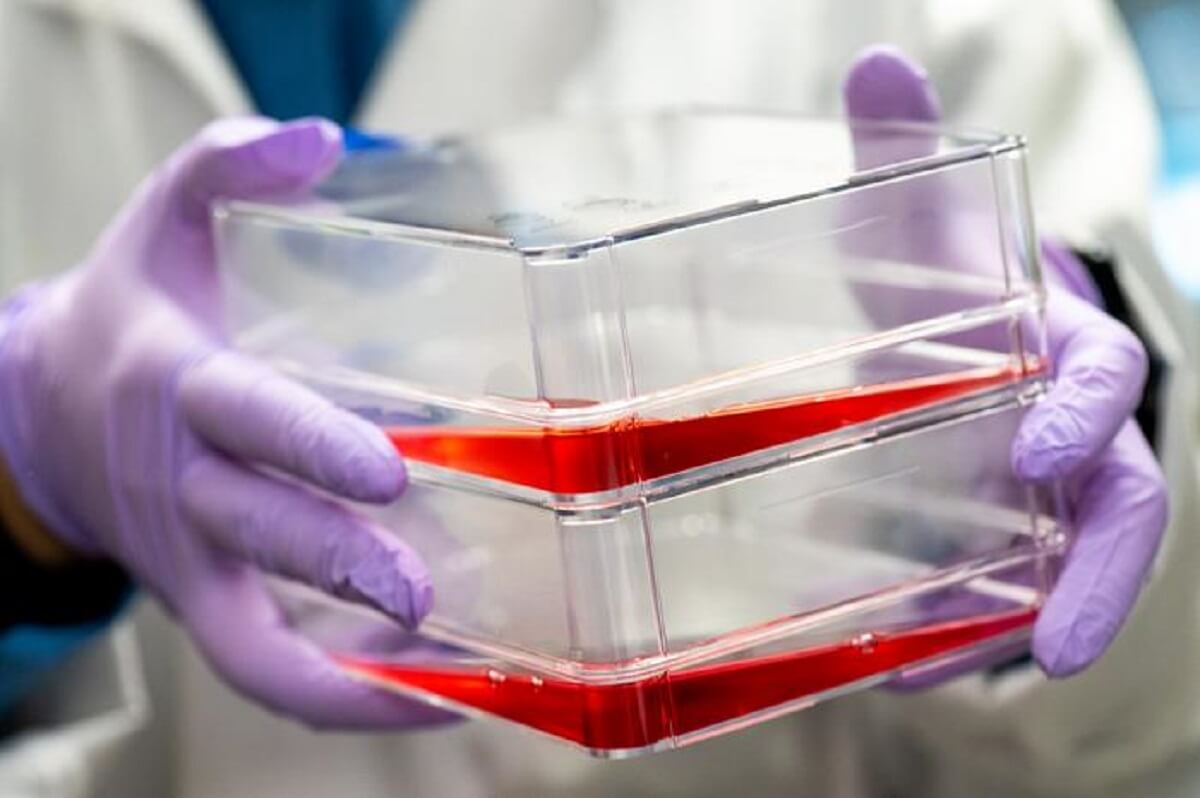BOSTON — A scientific advancement could soon make lab-grown meat widespread and affordable within the next few years, scientists say. Researchers at Tufts University have developed a method to create beef muscle cells capable of producing their own growth factors. This breakthrough could drastically reduce production costs, which have previously been driven up by the need for expensive, externally added growth factors.
Traditionally, the production of cultivated meat, which involves growing meat from cells in bioreactors instead of farming animals, has been hindered by high costs. About 90 percent of these costs stem from the addition of growth factors. These factors, necessary for cell growth and differentiation, are typically added to the liquid media surrounding the growing meat and need frequent replenishment.
However, in the new study, scientists found a way to engineer stem cells to produce their own fibroblast growth factor (FGF), essential for the growth of skeletal muscle cells found in products like steaks and hamburgers.
“FGF is not exactly a nutrient. It’s more like an instruction for the cells to behave in a certain way,” explains lead researcher Dr. Andrew Stout, Director of Science at Tufts Cellular Agriculture Commercialization Lab, in a media release. “What we did was engineer bovine (beef) muscle stem cells to produce these growth factors and turn on the signaling pathways themselves.”

While this innovation significantly cuts costs, researchers need to further optimize the technique for the food industry. The research team observed slower growth in the engineered cells but believes they can overcome this with adjustments in the expression levels and timing of FGF or by altering other cell growth pathways. This method, which involves editing native genes rather than adding foreign ones, might also simplify regulatory approval processes.
The study also opens possibilities for producing exotic and even extinct meats.
“Work is continuing at Tufts University Center for Cellular Agriculture and elsewhere to improve cultivated meat technology – including exploring ways to reduce the cost of nutrients in the growth media, and improving the texture, taste, and nutritional content of the meat,” adds co-author of the study, Dr. David Kaplan, a Stern Family Professor of Engineering at Tufts.
“Products have already been awarded regulatory approval for consumption in the U.S. and globally, although costs and availability remain limiting. “I think advances like this will bring us much closer to seeing affordable cultivated meat in our local supermarkets within the next few years.”
The research is published in the journal Cell Reports Sustainability.
South West News Service writer James Gamble contributed to this report.
